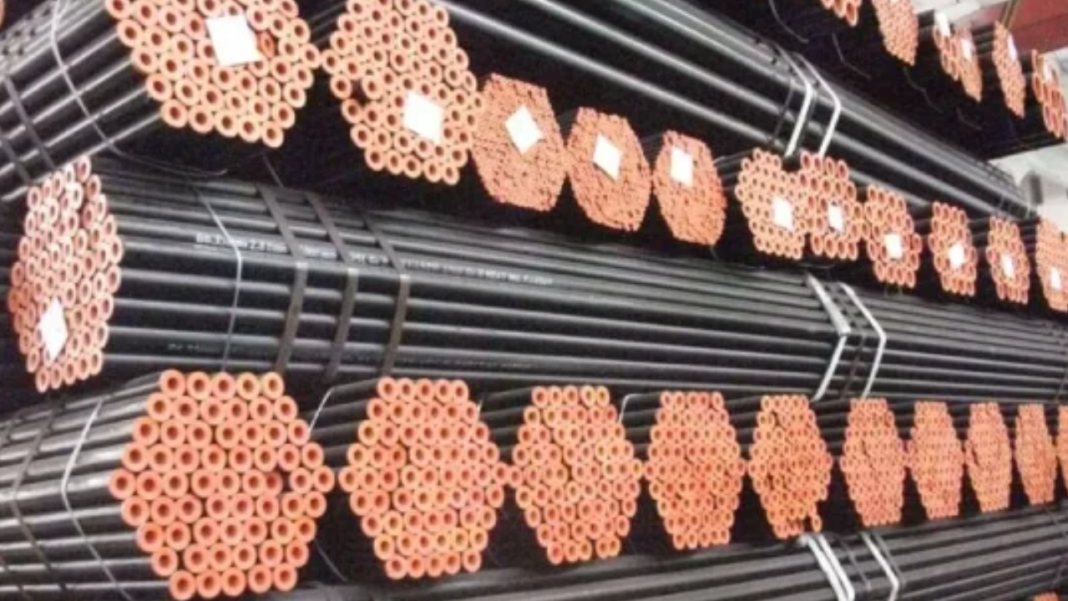Boiler pipes are essential components in the manufacture of boilers, which are critical machines for heating and producing steam in a variety of industrial applications. These pipes serve an important role in aiding heat transfer from the combustion process to the water or other fluids within the boiler, allowing steam to be generated for power generation or heating. Boiler pipes are designed to meet demanding standards for safety, efficiency, and lifespan.
They are made of materials that can tolerate high temperatures and pressures. Carbon steel, alloy steel, and stainless steel are common materials, with each chosen based on the boiler pipe specific requirements and operating conditions. Boiler pipes come in a range of shapes and sizes. Because of their increased strength and dependability, seamless pipes are commonly used in high-pressure applications.
Safety Considerations for Boiler Pipes
Here are some necessary safety considerations for the optimal performance of boiler pipes. See the details below:
Material Selection
Material choice is critical for boiler pipe safety. Carbon steel, alloy steel, or stainless steel must be able to tolerate high temperatures and pressures while being corrosion-free. Rigorous adherence to industry standards guarantees that materials have the essential mechanical qualities and endurance. A well-informed selection process is the foundation for boiler pipes that provide safety and longevity in industrial settings.
Proper Installation Practices
The installation of boiler pipes necessitates accuracy and adherence to the industry’s best standards. Welding and threading are popular procedures used, and the choice is based on pipe material, system requirements, and project parameters. Proper alignment and support are critical for preventing stress concentrations and ensuring even load distribution. Additionally, all welding techniques must adhere to set criteria to protect the structural integrity of the pipes.
Regular Inspection and Monitoring
Routine inspections are essential for ensuring boiler pipe safety. Regular visual inspections can reveal early indicators of corrosion, leakage, or structural problems. Advanced non-destructive testing techniques look beyond the surface to detect internal flaws. Inspections should also include dimensional tests to ensure that the pipes satisfy the required specifications. Continuous monitoring of operating parameters increases safety by allowing for early intervention if deviations occur.
Mitigating Corrosion
Corrosion is a major concern for boiler pipes, potentially causing leaks, lower efficiency, and safety hazards. Preventive techniques include choosing corrosion-resistant materials, using the correct water treatment to manage pH levels and reduce oxygen content, and applying protective coatings. Regular corrosion inspections and prompt action in the event of a discovered issue are critical to maintaining the structural integrity of boiler pipes.
Pressure and Temperature Considerations
Boiler pipes work in situations with high pressures and temperatures. Understanding and sticking to the intended pressure and temperature limitations is critical for safety. Overloading or subjecting pipes to conditions that exceed their stated limitations can result in catastrophic breakdowns. As a result, operators must closely adhere to approved operating conditions while also being cognizant of the constraints imposed by the pipes’ materials.
Compliance with Regulatory Standards
Adherence to regulatory standards and norms is both a legal and ethical necessity for assuring boiler pipe safety. National and international guidelines for design, construction, and operation are provided by organizations like the American Society of Mechanical Engineers (ASME) and other regulatory bodies. Failure to comply with these requirements not only endangers safety but can also lead to legal implications and financial fines.
Emergency Response Plans
Emergency reaction strategies are essential for ensuring boiler pipe safety. These plans detail processes for mitigating the effects of unforeseen events, such as shutdown protocols, area isolation, and personnel and property safety precautions. Industries that have a well-defined emergency response strategy in place can successfully handle contingencies and protect against potential risks, adding to the overall safety and resilience of their boiler systems.
Remarks
The combination of safety measures not only protects the integrity of boiler pipes but also protects the entire industrial activity, resulting in a safe and efficient working environment. Industry professionals help to ensure the longevity, dependability, and sustainability of boiler systems in a variety of industrial applications by prioritizing safety at every stage, from design to operation.










